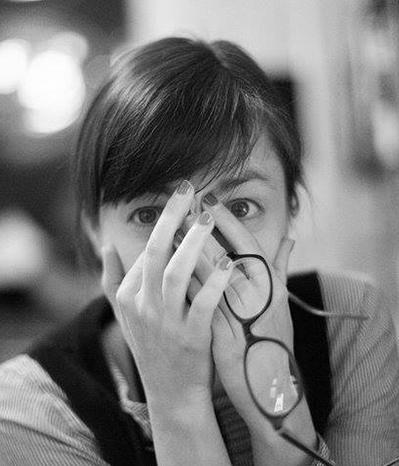At the very entrance, the business card forces me to distribute my identity into test tubes that have already been labeled. I am obliged to break down my present “self” through some physical and biological analysis – age, gender, reproductive system. Every question mark belies a divider, which under certain circumstances could become the reason for being excluded from a community. According to a sociological study at the University of Konstanz, a Turkish family name in Germany may become the reason for not being invited to a job interview – regardless of the candidate’s qualifications. It’s the same with children, whether one has them or not: if the candidate has children, she is more likely to take sick leave or days off work; if there are no children, a pregnancy or maternity leave may be looming in the near future. All of these are felt to be threats by the prospective employer. Or, let’s take the candidate’s age. The obsession with youth, dynamism, high energy. If we abandon the perverse idea of considering people as resources and look around us, we would see that each test tube contains so much poison. About a year ago, for instance, the blogosphere went abuzz with excitement about the word “spinster” – particularly exclusionary in itself (as a friend put it, “I am not a single, I am a whole album”).
If I present the person I share my life with as “my boyfriend/ girlfriend” or as my “spouse”, what exactly about my identity changes? Have I reproduced, have I managed to live up to the ideal of a beautiful daughter or a well-bred son or do I prefer to live alone? Where was I born, and when? I am not sure that nowadays this kind of information should constitute a “business card” one hands to people when meeting them for the first time.
And now the particular questions:
1. What is my identity? My social networks profile is my better “self,” so I would say I have a social network kind of identity.
2. I would not put my identities (gender, confessional, national, professional, social, marital, etc.) in any particular order. I accept that they are all mixed up as in a fruit salad in which each ingredient appears in different quantities. As one gets older, some of the fruit will likely disappear – it would get eaten, it would rot or eventually some identity would win and climb to the top of the taste hierarchy. For the time being, all ingredients co-exist in a non-hierarchical salad state.
3. Every book that I read and movie or TV series that I watch provide space for identification, if only for a moment. As far as my musical preferences – I find myself living through a new age of puberty in which music occupies a central place. I could also present myself in the following way: “Hello. My name is Vera and I love bad melancholy music.” Maybe my musical preferences have acquired such importance because they offer a very “appreciative” imagined community, which today can be easily shared; one quickly feels integrated into a community of fans.
4. It is both a help and an obstacle in a very trivial way – I have been living in Germany for a very long time and my Eastern accent is incorrigible. From the very first word I utter, my national identity is out in the open, which can be both good and bad, to a various degree depending on the situation. I have no idea what it would be to find myself in Dresden, where for the last few years the nationalist overtones have become increasingly menacing and worrying – they even threw eggs and literally spat at President Joachim Gauck, who in his identity as a politician advocates integration.
5. What follows is the possibility (or even the luxury, I’d say) of being able to return to where I was born and where grew up. It’s a good feeling.
Translated by Olga Nikolova
2017
